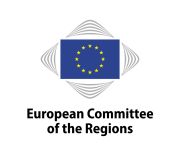
Interoperability is a key enabler for seamless exchange of data and building user-centric public services. This session introduces the new Interoperable Europe policy to help all administrations create better public services for citizens and businesses that also work across borders. It invites participants to discuss the key features of the Interoperable Europe Act and their impact on local and regional policymakers.
- Local and regional | National | EU/ European | Governance and Public administration | Digital and ICT
- Code: 11PL23191
Practical information
- When
-
Wed 11/10/2023, 16:30 - 18:00 CET
- Type of partnership
- NONE
- Format
- Participatory/Political lab
- Theme
-
Breaking barriers to cross-border cooperation
- Language
- English
- Website
-
https://joinup.ec.europa.eu/interoperable-europe
- Social media
-
@IInteroperableEU
@InteroperableEurope

Partner

Reporting
Session summary
About 150 million Europeans live in a border region and some 2 million commute daily for work, while many need access to public services in another Member State, in order to study, work, live or retire abroad. For these people, cross-border digital public services are crucial for reducing administrative burden and costs. Interoperability is a key enabler for seamless exchange of data and building user-centric public services.
This session introduced the recently proposed Interoperable Europe Act that will strengthen the EU’s public sector interoperability policy. The Act will set up a governance scheme, make interoperability assessments mandatory and encourage the share and re-use of interoperability solutions. The intervention by the rapporteur of the opinion of the Committee of the Regions highlighted the impact that act will have on regions; in particular remote regions that may specifically benefit from improved digital public services.
ESPON presented findings of an EU-wide inventory of cross-border public services, highlighting the policy areas, where such public services are mostly available, but also pointing to the legal- and governance-related obstacles to tackle. The presentation by the Interreg policy learning platform pointed to several Interreg projects that support interoperability in cross-border contexts in areas such as mobility and health/security and drew the attention to successful peer reviews. Finally, the role of pre-commercial procurement and as a means to bring innovation to public administrations. Finally, the challenge approach, contests, hackathons as well as the role of pre-commercial procurement were discussed, as a means to bring innovation to public administrations. Last, but not least, the speaker from the Nordic Institute for Interoperability Solutions - a network grouping Estonia, Finland and Iceland, the Faroe Islands and the Government of Åland - talked about their cooperation platform and digital government solutions and how interoperability enables these to work across these countries, but also globally.
The panel discussion and subsequent Sli.do input from the audience revealed interesting ideas for policy-makers:
• With regard to what the Interoperable Europe Community should recommend to the Board to help cross-border regions, suggestions spanned from the identification of the key public services to the most important sectors in a cross-border context (e.g. employment, health, social security). They also suggested the development of content-agnostic, citizen-centric solutions, digital technologies for decision-making as well as toolkits and methodologies to ‘’scale-down’’ initiatives and solutions to the needs of regions. Technically speaking the focus should be on improving semantic interoperability and on the missing data exchange standards, while making use of data spaces to improve cross-border services. Another interesting idea that came forward was to integrate interoperability aspects into research & innovation strategies for smart specialization for regions (RIS3).
• In the discussion about what kind of support projects would be most helpful for cross-border regions, the comments called for a focus on key cross-border life events, mobility and climate change adaptation capacity building. They also suggested replicating and re-using already functioning solutions, financing small "proof of interoperability" projects to demonstrate the feasibility of an interoperable solution and piloting them in secure and realistic testing environments. Another idea was the establishment of an interoperability marketplace for certified interoperable building blocks, combined with educational and MOOCs for building skills in interoperability and on cross-border services.



